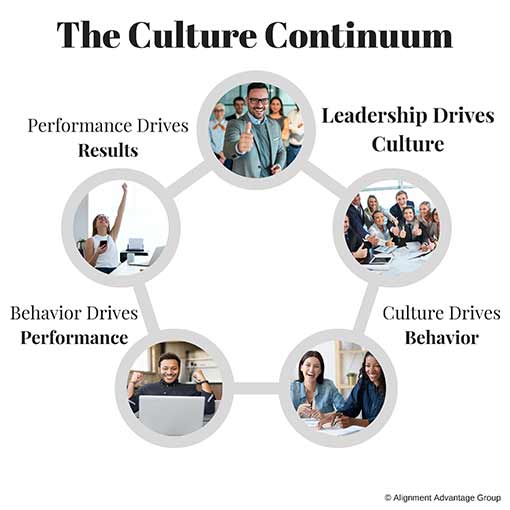How you welcome your new recruits into your contact centre is the best opportunity you have to embed your culture and influence your staff retention rates – for better or for worse.
Yet despite the overwhelming benefits, Gallup found that ‘only 12% of employees strongly agree that their organization does a great job onboarding new employees’.
Time to make sure your contact centre is in the esteemed 12%?
Our Editor Megan Jones spoke to Adam Boelke, Managing Partner at The Alignment Advantage Group, and Dan Smitley, Founder of 2:Three Consulting, about what it takes to get onboarding right – and rounded up some of the best tips and ideas seen first-hand at some of the most inspiring UK contact centres too – to bring you 21 top tips to improve your agent onboarding.
Go Above and Beyond to Welcome New Agents Into Your Contact Centre
Here are some great ideas on how to make your agents feel a very warm welcome as they join your contact centre…
1. Introduce Agents to Their Team During the Recruitment Process
Invite representatives from their team or department to meet and greet your potential new agents during the recruitment process.
Unfortunately, many teams are disconnected from the hiring process and only meet their new colleague on their first day. This doesn’t help anyone.
Instead, invite representatives from their team or department to meet and greet your potential new agents during the recruitment process. This helps to ensure new starters see a familiar face or two as soon as they arrive, helping to ease the transition into the team.
2. Make a Quick Phone Call to Reinforce Your Excitement
In the lead-up to their first day, it can make a massive difference if the agent’s new team leader or manager – or even a member of the senior leadership team – makes a quick phone call to say how excited they are about them joining the team.
This is a great opportunity to reinforce the energy and the excitement around them coming into your contact centre, as well as a chance to remind them of any employee benefits, and answer any questions they might have, so they have a great first day.
This can have a positive impact on attrition levels too, as Adam Boelke explains:
“Attrition rates typically include those who didn’t show up even after you hired them. That’s why making the time for this extra phone call can really help to make sure that the majority of your new recruits feel excited about joining your contact centre and actually show up on their first day.”
3. Prioritize a ‘Meet and Greet’ With Each Pool of New Recruits
As a leader, you must be proactive in your onboarding and recognize that you play a critical role in endorsing the culture in the onboarding process for new hires coming into the contact centre.
That’s why it can really help to make time in your busy schedule to ‘meet and greet’ each pool of new recruits, and present to them about the mission values and the cultural principles that your contact centre (and even wider company) operates within.
Not only does this send a clear message to the new recruits that you care enough to make time for them, but by enforcing a top-down approach, you can help agents feel confident that they know what’s expected of them and how best to interact with their team and customers – setting high standards of behaviour and aligning everyone with the same values from the outset.
Taking a consistent approach can pay dividends in the long run too, as The Culture Continuum (kindly shared by Adam Boelke) shows: leadership drives culture, culture drives behaviour, behaviour drives performance, and performance drives results:

4. Take a Genuine Interest in Getting to Know People
Another great opportunity during onboarding is to get to know your new agents as people – not just numbered employees!
A little effort can go a long way here in taking some time to ask about their family, hobbies, and pets, to create a human connection.
This can help kick-start a positive working relationship and give you context to genuinely ask how their new puppy is getting on (or similar) further down the line. All helping to make agents feel genuinely welcome.
5. Invest in the Extra Support Your New Agents Need to Thrive
You simply can’t treat your new agents in the same way as your seasoned professionals, so make sure you plan to give them the extra support they need in the early days.
This could include increasing the ratio of team leaders to new agents to make time for answering (inevitably) more questions and/or assigning them with a workplace buddy to give them a friendly face to turn to – even on their lunch break.
It’s also crucial to prepare your team with the right soft skills before they start dealing with calls. For advice on this, read our article: 5 Soft Skills Every Agent Needs Before Taking Their First Call
6. Reassure Your New Agents They’ll Catch Up With Their Team Soon Enough
Don’t ramp up the pressure on day one!
Make it clear to your new starters that your expectations of their performance are NOT the same as what they are seeing on wallboards from their seasoned co-workers.
Instead, make it clear to your new starters that your expectations of their performance are NOT the same as what they are seeing on wallboards from their seasoned co-workers.
It’s about reassuring them and saying, “Hey, I know these are the overall numbers of the team, but eventually you’ll get there too. Don’t worry, everybody goes through this process”.
Then focus on helping them in their personal development journey, with an initial emphasis on getting things done right – instead of fast.
7. Regularly Check In and Remind New Agents How Great They’re Doing
Regular communication is also key, so be sure to tell agents how pleased you are with their progress and share proactive feedback on their next steps for their development.
You could even make time for more frequent coaching sessions during your onboarding process to send a strong message that you care and are invested in their long-term success.
Don’t Overlook the Role of Your Planning Team
Here are some top tips and ideas on how your planning team can help improve your agent onboarding experience too:
8. Don’t Have a Different Work Schedule in Your Training Bays Compared to “Real Life”
Avoid having a different schedule experience inside of training compared to what they’ll be expected to work outside of training, as Dan Smitley explains:

“It’s very easy for contact centres to align with their trainers’ working hours and set initial shifts to a standard Monday–Friday pattern – and then throw agents into more unsociable shift patterns (including weekends) as soon as they graduate. But when you do that, you inevitably set everyone up to fail.
“That’s why a good habit to get into during onboarding is to have the working schedules on the training bays match those in the live call centre – even if it is a bit harder on the trainers’ schedules – so ‘real life’ is not a shock to agents when they move to the main floor.
“This approach also helps them adjust to the potential pain of working on weekends (for example) so they have a better chance of making it to the end of the onboarding process too.”
It is also important to get agents into a routine for when they start taking calls. For advice, read our article: Hit the Ground Running! How to Help Your Agents Be Shift Ready
9. Show New Recruits That You Can Listen and Be Flexible – Even During Training
Another way to help new starters settle in is to rethink where the planning team can empower them to have some sense of autonomy and flexibility, as Dan continues:
“If you’re promoting a culture of collaboration and flexibility, you don’t want to get this off to a bad start with a highly regimented training schedule, so think about what that autonomy could look like in the training period too.
“For example, if an agent comes to you with a shift-swap request, could you give that agent a choice to join another training group and take the class at another time, or even give them the option of watching the session back on demand?
“It’s about setting the tone for a long-term positive relationship between the planning team and new agents, showing them as soon as possible that you will listen to them and try to accommodate any needs in their personal life – even during the initial training period.”
Tried and Tested Ideas Seen on Our Call Centre Helper Road Trips
Here’s a round-up of some of the great onboarding tips we heard when visiting some of the best contact centres in the UK, as part of our latest Call Centre Helper Road Trips:
10. Keep New Recruits in the Office to Help Them Make Friends
To support their hybrid model, Leeds Building Society ask new recruits to work office-only for the first six months of their tenure.
Why? They find this helps them to learn from and build relationships with their peers, as well as absorb the company culture.
Ask new recruits to work office-only for the first six months of their tenure. To help them to learn from and build relationships with their peers, as well as absorb the company culture.
It also fosters a desire to spend time in the office – even when they have the freedom to work hybrid at the end of their probation period.
This approach has proven to be an overall success, as around 70% of people are in the office at any one time (because they want to be there) and they only have 12 people permanently working from home.
11. Ask Your New Recruits What They DON’T Like
A good tip for building openness and making sure everyone feels they have a voice is to host a quick session every month to ask new recruits “what don’t you like about working here?”
This helps to instil an open culture and connection early on – as well as nipping any challenges or miscommunications in the bud.
As seen in our article from our site visit to Leeds Building Society
12. Give Your Agents Products to Touch, Feel, and Familiarize Themselves With
As part of the technical training on specific products, make sure there are products on site for agents to familiarize themselves with and understand how to fix.
As part of the technical training on specific products, WeAnswer and some of their clients make sure there are products on site for agents to familiarize themselves with and understand how to fix.
This hands-on experience helps them handle customer queries more effectively, so they can visualize what the customer is seeing and better describe the next steps involved.
This mindset also extends to having hard copies of clients’ catalogues to hand so customers can talk about item 5 on page 26 (for example) and the agent can quickly find the same page and continue the conversation.
As seen in our article from our site visit to WeAnswer
13. Show Someone How to Do Something – Don’t Just Do It For Them
Make a habit of teaching people how to do things, as Amy Pope, Senior Technical Support Advisor at Fasthosts, comments:
“If someone doesn’t know how to do something and asks for help, don’t just do it for them and walk away. Instead, help them learn HOW to do it for themselves.
“This creates ongoing improvements in employee knowledge and boosts First Contact Resolution, so everyone benefits.”
As seen in our article from our site visit to Fasthosts
14. Create Breathing Space for New Training Initiatives to Bed In
Don’t overload your team with training.
Instead, after each new initiative, create some breathing space of a week or two for the training to bed in – and even do some side-by-side sessions to check all looks ok – before moving on to the next layer of the training programme.
Also, avoid a blanket approach to training and lead with an “if you don’t need it, you don’t get it” approach to create personalized training plans that meet real needs.
15. Have a Company Uniform to Create a Sense of Togetherness
One way to create a sense of togetherness is to create a company uniform of hoodies, gilets and polo shirts for colleagues to wear to the office, if they like.
As seen in our article from our site visit to The Fuel Store
Looking for ideas on dress codes? Read our article: Call Centre Dress Codes
16. Create Podcasts to Help Employees Learn
Not everyone likes or finds it easy to absorb information by reading an email or leaflet.
That’s why recording internal podcasts can help employees absorb knowledge in different formats.
17. Create a Dedicated Training Room for New Starters
Specsavers have a dedicated training room for new starters. The desk set-ups are the same as on the call centre floor – with sugary treats on hand to help them through the intense training period.
They also train only six new starters at any one point, so they get the support they need to hit the ground running.
As seen in our article from our site visit to Specsavers
18. Create Opportunities for Agents to Experience Life Outside the Call Centre
It can really help to engage agents in the bigger picture by getting them outside of the call centre environment to meet customers face to face.
Employees at the AA site are given opportunities to go out on the road with the recovery team to see the service experience first-hand.
It can really help to engage agents in the bigger picture by getting them outside of the call centre environment to meet customers face to face.
They also get involved in promotional activities, including attending events (such as Glastonbury Festival) to hand out flyers and ‘meet and greet’ the public.
As seen in our article from our site visit to the AA
19. Create a Clear Framework for Career Progression
Alongside opportunities to become team leaders and/or move into the wider business, ManyPets has created a 5-year career path for their agents. This helps with staff retention.
They can progress through levels 1–3 in customer service, claims, and even into the FirstVet video service team – all helping to reward and recognize people with new challenges, opportunities, and pay rises throughout their time with the company.
As seen in our article from our site visit to ManyPets
If you are looking to develop your employees’ future career prospects within the contact centre, read our article: 10 Career Progression Opportunities to Offer Your Team
Get It Right BEFORE the Onboarding Process Even Begins
That’s not all! There are also some great ways to support a better onboarding process in the early recruitment stages, including to:
20. Weed Out a Quantity Over Quality Approach
Make sure your hiring teams are looking for the behaviour and the culture fit that’s right for your contact centre – not just skills and experience, as Adam Boelke explains:

“This can get overlooked when recruiters are too focused on hitting their hiring quota and sometimes sacrifice quality of candidate over quantity to meet their personal targets.
“To address this, make sure your recruitment team aren’t just financially rewarded for quantity, but that they’ve got some quality metrics in there as well.
“This can also be supported by creating a profile or avatar of the ideal candidate your recruitment teams should be going after – to make it quick and easy for everyone to understand who you’re looking for.”
Sometimes a new employee can seem like the right choice, but this may not be the case. For advice on how to make sure, read our article: 10 Red Flags to Watch Out for With New Hires
21. Use Behaviour-Based Interview Questions to Check They’re Right for the Job
You should also use behaviour-based interview questions to determine if potential new recruits are going to be able to handle the real demands of day-to-day contact centre life.
For example, how are they going to handle an (inevitable) stressful day of high call volumes or receiving regular feedback on their performance.
For more great ideas on potential interview questions, read our article: Top 50 Customer Service Interview Questions – with Answers
Where Are Leaders Getting the Onboarding Process So Wrong?
Cultures Get Made With OR Without Leadership Input
Never forget that cultures get formed with OR without leadership input!
This isn’t too much of an issue if new recruits are coming from friendly office environments but can be a huge problem if they come from toxic environments, where backstabbing and fraught company politics are the norm – as this can quickly seep into YOUR culture too.
That’s why it’s so critical to create an onboarding process that intentionally drives a positive employee culture that promotes employee engagement and strong retention rates – for everyone’s benefit.
We have a number of other great articles that can help you improve your onboarding and induction programmes, so read these next:
- Simple Ways to Give Remote Workers a Warm ‘Virtual’ Welcome
- Going From Induction to Onboarding
- 10 Initiatives to Improve Induction Training
Author: Megan Jones
Reviewed by: Xander Freeman
Published On: 7th Aug 2024 - Last modified: 15th Aug 2024
Read more about - Call Centre Management, Adam Boelke, Dan Smitley, Editor's Picks, Employee Engagement, Induction Training Programmes, Recruitment, Team Management, Top Story















